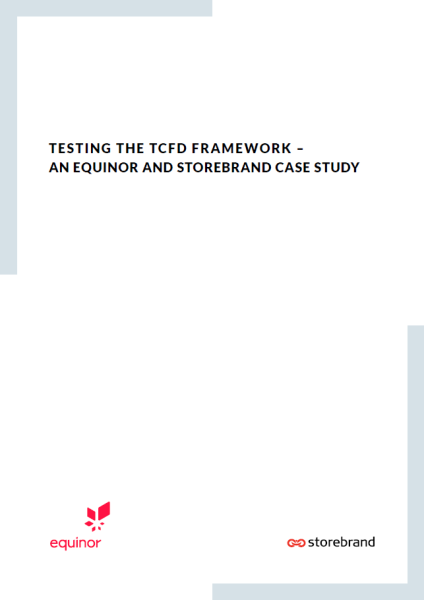What was the initial approach used?
The case study is based on a review of Equinor’s 2016 annual report and sustainability report, as well as the capital markets update presentation from February 2017. Through dialogue, Equinor and Storebrand identified some areas in Equinor’s 2016 reporting which potentially could have been improved, resulting in further alignment with the TCFD recommendations.
What were the barriers, and how were they overcome?
Storebrand and Equinor acknowledge that forward looking scenarios are highly uncertain. The desire for quantification of risks is very challenging due to the wide range of uncertainty related to climate-related scenarios, and hence the difficulty of assessing the probability and scale of impact. Dialogue between portfolio managers, sustainability analysts, corporate sustainability team and executives helped to increase the understanding of the topic and align expectations.
Further insights
Equinor and Storebrand intend to continue working together to help mature thinking around some of the topics identified above and engage with the PRI and TCFD on efficient and feasible ways to implement the recommendations. In particular, the companies encourage discussion on the following issues:
- Use of metrics: How to encourage more standardised use of metrics and quantifiable indicators, where relevant and possible, rather than relying on text describing intentions and processes
- Use of scenarios: How to present and use forward-looking information of high uncertainty
- Disclosure format: How to apply the TCFD guidelines without disaggregating climate risk from enterprise risk
- Materiality: How to ensure flexibility regarding disclosure of information that is not material
- Fit-for-purpose implementation: How to balance the desire for detailed information with considerations of adaptability and comparability across sectors and geographies.
